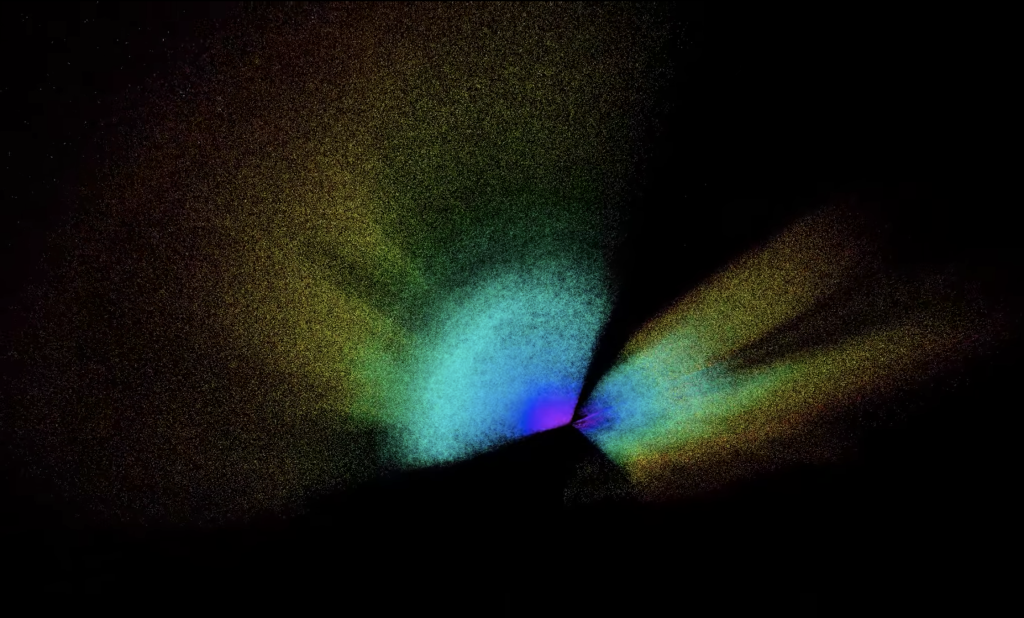Astronomers reevaluate the age of the universe
Breaking space news, the latest updates on rocket launches, skywatching events and more!
You are now subscribed
Your newsletter sign-up was successful
Want to add more newsletters?

Delivered daily
Daily Newsletter
Breaking space news, the latest updates on rocket launches, skywatching events and more!

Once a month
Watch This Space
Sign up to our monthly entertainment newsletter to keep up with all our coverage of the latest sci-fi and space movies, tv shows, games and books.

Once a week
Night Sky This Week
Discover this week's must-see night sky events, moon phases, and stunning astrophotos. Sign up for our skywatching newsletter and explore the universe with us!

Twice a month
Strange New Words
Space.com's Sci-Fi Reader's Club. Read a sci-fi short story every month and join a virtual community of fellow science fiction fans!
The universe is (nearly) 14 billion years old, astronomers confirm.
With looming discrepancies about the true age of the universe, scientists have taken a fresh look at the observable (expanding) universe and have estimated that it is 13.77 billion years old (plus or minus 40 million years).
In 2019, scientists studying the movement of galaxies concluded that the universe is hundreds of millions of years younger than previously estimated by the Planck Collaboration, a group of scientists who have worked with the European Space Agency's Planck mission. Using data from the Planck space observatory, they found the universe to be approximately 13.8 billion years old.
Related: Planck spacecraft sees Big Bang relics (gallery)
To settle the score, an international team of astronomers led by Cornell university used data from the National Science Foundation's Atacama Cosmology Telescope (ACT) in Chile and "cosmic geometry" to end the debate, Cornell officials said in a statement. Their estimate of (about) 13.77 billion years roughly matches the estimate from the Planck Collaboration.
"Now we've come up with an answer where Planck and ACT agree," astronomer Simone Aiola, a researcher at the Flatiron Institute's Center for Computational Astrophysics in New York City and author of one of two new papers describing these findings, said in the same statement. "It speaks to the fact that these difficult measurements are reliable."
By determining the age of the universe, the researchers also were able to estimate how fast the universe is expanding — this figure is known as the Hubble constant. With ACT, they calculated a Hubble constant of 42 miles per second per megaparsec, or 67.6 kilometers per second per megaparsec. In other (simpler) words, they found that an object 1 megaparsec (or about 3.26 million light-years) away from Earth would be moving away from Earth at 42 miles per second (67.6 km/s).
Breaking space news, the latest updates on rocket launches, skywatching events and more!
This is extremely close to the 41.88 miles per second per megaparsec (67.4 km per second per megaparsec) previously estimated by the Planck team. However, previous measurements of the motion of galaxies have shown that the universe is expanding faster than this, according to the same statement.
"I didn't have a particular preference for any specific value — it was going to be interesting one way or another," Steve Choi, a researcher at the Cornell Center for Astrophysics and Planetary Science who co-authored one of the new papers, said in the same statement. "We find an expansion rate that is right on the estimate by the Planck satellite team. This gives us more confidence in measurements of the universe's oldest light."
This work was published Dec. 30 2020 in two papers in the Journal of Cosmology and Astroparticle Physics.
Email Chelsea Gohd at cgohd@space.com or follow her on Twitter @chelsea_gohd. Follow us on Twitter @Spacedotcom and on Facebook.

Chelsea “Foxanne” Gohd joined Space.com in 2018 and is now a Senior Writer, writing about everything from climate change to planetary science and human spaceflight in both articles and on-camera in videos. With a degree in Public Health and biological sciences, Chelsea has written and worked for institutions including the American Museum of Natural History, Scientific American, Discover Magazine Blog, Astronomy Magazine and Live Science. When not writing, editing or filming something space-y, Chelsea "Foxanne" Gohd is writing music and performing as Foxanne, even launching a song to space in 2021 with Inspiration4. You can follow her on Twitter @chelsea_gohd and @foxannemusic.

